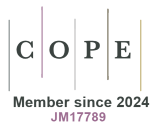Factors influencing short-term effectiveness and efficiency of the care provided by Dutch general practice mental health professionals
DOI:
https://doi.org/10.33393/grhta.2020.2028Keywords:
Costs, General Practice Mental Health Professionals, Mental Disorders, Net-Benefit, Netherlands, QALYAbstract
Introduction: This study examined whether factors related to general practice mental health professionals (GP-MHPs), that is, characteristics of the professional, the function, and the care provided, were associated with short-term effectiveness and efficiency of the care provided by GP-MHPs to adults in Dutch general practice.
Methods: A prospective cohort study was conducted among 320 adults with anxiety or depressive symptoms who had an intake consultation with GP-MHPs (n = 64). Effectiveness was measured in terms of change in quality-adjusted life years (QALYs) 3 months after intake; and efficiency in terms of net monetary benefit (NMB) at 3-month follow-up. A range of GP-MHP-related predictors and patient-related confounders was considered.
Results: Patients gained on average 0.022 QALYs at 3-month follow-up. The mean total costs per patient during the 3-month follow-up period (€3,864; 95% confidence interval [CI]: €3,196-€4,731) decreased compared to that during the 3 months before intake (€5,220; 95% CI: €4,639–€5,925), resulting largely from an increase in productivity. Providing mindfulness and/or relaxation exercises was associated with QALY decrement. Having longer work experience as a GP-MHP (≥2 years) and having 10-20 years of work experience as a mental health care professional were negatively associated with NMB. Furthermore, a higher number of homework exercises tended to be related to less efficient care. Finally, being self-employed and being seconded from an organization in which primary care and mental health care organizations collaborate were related to a positive NMB, while being seconded from a mental health organization tended towards such a relationship.
Conclusions: Findings seem to imply that the care provided by GP-MHPs contributes to improving patients’ functioning. Some GP-MHP-related characteristics appear to influence short-term effectiveness and efficiency of the care provided. Further research is needed to confirm and better explain these findings and to examine longer-term effects.
References
- de Graaf R, ten Have M, van Dorsselaer S. De psychische gezondheid van de Nederlandse bevolking. Utrecht: Nemesis-2: Opzet en eerste resultaten, Trimbos Instituut (Netherlands Institute of Mental Health and Addiction) 2010.
- WHO. Depression and other common mental disorders: global health estimates. 2017.
- Mnookin S, Kleinman A, Evans T. Out of the shadows: making mental health a global development priority. Washington, DC: World Bank Group 2016.
- Vigo D, Thornicroft G, Atun R. Estimating the true global burden of mental illness. Lancet Psychiat. 2016;3(2):171-178.
- WHO. Integrating mental health into primary care: a global perspective. Geneva: World Health Organization 2008.
- Trend repport GGZ. Versterking van de GGZ in de huisartsenpraktijk. Terugblik, stand van zaken en vooruitblik. Utrecht: Timbos Instituut (Netherlands Institute of Mental Health and Addiction) 2014.
- Magnée T, Schellevis FG, Verhaak PF. Developments in mental health care in Dutch general practices: an overview of recent studies. Tijdschr Psychiatr. 2019;61(2):126-134.
- Vektis. Zorgthermometer Inzicht in de GGZ. Zeist: Vektis 2017.
- van Es M, Nicolaï L. Hoe gaat het met de praktijkondersteuner-ggz? Tijdschr praktijkondersteuning. 2015;10(2):42-48.
- Magnée T, de Beurs D, Schellevis F, Verhaak P. Steeds belangrijkere rol huisartsenpraktijk bij psychische problemen. Huisarts Wet. 2018;61(11):14-17.
- Landelijke Huisartsen Vereniging (LHV). Functie- en competentieprofiel POH-GGZ 2014. Utrecht: Nederlands Huisartsen Genootschap (NHG) 2014.
- Hakkaart-van Roijen L, Van der Linden N, Bouwmans C, Kanters T, Tan SS. Kostenhandleiding. Methodologie van kostenonderzoek en referentieprijzen voor economische evaluaties in de gezondheidszorg In opdracht van Zorginstituut Nederland Geactualiseerde versie 2015.
- Versteegh MM, Vermeulen KM, Evers SM, de Wit GA, Prenger R, Stolk EA. Dutch tariff for the five-level version of EQ-5D. Value Health. 2016;19(4):343-352.
- Bouwmans C, De Jong K, Timman R, et al. Feasibility, reliability and validity of a questionnaire on healthcare consumption and productivity loss in patients with a psychiatric disorder (TiC-P). BMC Health Serv Res. 2013;13(1):217.
- Independer. Huisartstarieven 2017. https://www.independer.nl/huisarts/info/wat-kost-een-huisarts/huisartstarieven.aspx. Accessed October 23, 2019.
- Zorginstituut Nederland. Farmacotherapeutisch Kompas Geneesmiddelen. https://www.farmacotherapeutischkompas.nl/. Accessed October 10, 2019.
- Zorginstituut Nederland. Medicijnkosten. https://www.medicijnkosten.nl/. Accessed October 10, 2019.
- Brouwer W, van Baal P, van Exel J, Versteegh M. When is it too expensive? Cost-effectiveness thresholds and health care decision-making. Eur J Health Econ. 2019;20(2):175-180.
- Spitzer RL, Kroenke K, Williams JB. https://www.phqscreeners.com/select-screener. Accessed October 5, 2019.
- Fonti V, Belitser E. Feature selection using lasso. VU Amsterdam Research Paper in Business Analytics 2017.
- Wiebe S, Guyatt G, Weaver B, Matijevic S, Sidwell C. Comparative responsiveness of generic and specific quality-of-life instruments. J Clin Epidemiol. 2003;56(1):52-60.
- Wijnen BFM, Mosweu I, Majoie MHJM, et al. A comparison of the responsiveness of EQ-5D-5L and the QOLIE-31P and mapping of QOLIE-31P to EQ-5D-5L in epilepsy. Eur J Health Econ. 2018;19(6):861-870.










